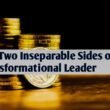Author
Olusegun Osineye earned his Doctor of Ministry (DMin) in Transformational Leadership from Boston University. He's passionate about creatively adding value to people by utilizing life's simple philosophy for their flourishing. He is also committed to the social reengineering of the African society.













You are absolutely right. There is something in this and an excellent idea, I agree with you.